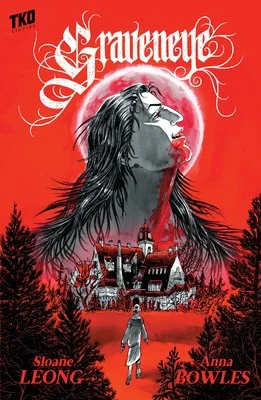This review doesn't contain any spoilers, so read assuredly on.
"Anna was a good wife, mostly."
So begins Essbaum's dive into one woman's encounters with the provocations and perils that come with having an affair. Or several.
From the synopsis on Goodreads:
Anna Benz, an American in her late thirties, lives with her Swiss husband Bruno and their three young children in a postcard-perfect suburb of Zürich. Though she leads a comfortable, well-appointed life, Anna is falling apart inside. Adrift and increasingly unable to connect with the emotionally unavailable Bruno or even with her own thoughts and feelings, Anna tries to rouse herself with new experiences: German language classes, Jungian analysis, and a series of sexual affairs she enters into with an ease that surprises even her. Tensions escalate, and her lies start to spin out of control. Having crossed a moral threshold, Anna will discover where a woman goes when there’s no going back.
Hausfrau has been described as "Madame Bovary meets Fifty Shades of Grey," but since it's incredible well written and surprisingly insightful, while still containing copious amounts of sex, I find that to be half an inaccurate description. I think it's more like, Anna Karenina meets The Reader.
And if you're familiar with Anna Karenina or The Reader, you know that it's not just about the sex --I find it hard to believe that any good book could ever just be about sex--and the same is true for Hausfrau.
I wouldn't necessarily call Anna an unreliable narrator, but I wouldn't hesitate to call her an unstable one. She's constantly out of tune with the emotions of the people around her and doesn't appear to understand that her actions have consequences. She's not a sociopath: she does care for others; she loves her children very much. She just cares for herself more. She's not a narcissist: she understands her own pitfalls as a wife, mother, and friend, and, since she's pushing forty, makes frequent comments on her appearance that aren't unlike those of the typical woman. Anna is a level of self-centeredness that makes her uncaring to the needs of others.
We know from the beginning that Anna sees a psychiatrist and that she is never truly honest her. Try as the doctor might to diagnose the source of Anna's passivity and shoulder-shrugging way of going through life, she's unable to do so because, even through repeated visits, Anna refuses to open up to her. In the end, nearly everything the doctor says comes across as silly and misguided, which is exactly what Anna intended.
In fact, no one seems to know who Anna really is. It's not like she's the model wife and mother at home and she "lets her hair down," so to speak, and becomes the person she dreams of being with her lovers. She's guarded at all points in her life and in all interactions. She asks from others while giving nothing of herself except her body. It's the only form of currency she offers.
Anna's passivity was a point of fascination for me because she seems to want something more from life, yet we never find out what that is. If she wants a loving husband, she makes no attempt to show her husband Bruno that he's anything more than a roommate. If she wants friends, she makes no attempt to socialize and when friends inadvertently find her, she takes from their kindness and seldom gives some in return. If she wants to be accepted by people in Zurich, she makes no (serious) attempt to learn the language. If she wants to be more involved in her children's lives, she makes no attempt to see them after school if it means missing an opportunity to meet a lover and grandma is available.
Anna is much more complex than one might initially give her credit for, and this is reflected in the telling of the story. While the novel spans just a handful of months, the narrative seamlessly weaves from present day to a years-old affair to sessions with her psychiatrist. The narrative knits itself together perfectly and doesn't dwell on any one flashback long enough to make you forget what's happening present day. That's the true beauty of the novel--Essbaum tells stories like they have always intended to be told, yet so few actually get right.
Even if you (think) you're not into books where sex is a major part of the plot, I'd encourage you to give Hausfrau a try. It has all the elements you love about literary fiction and romance, while just being one of the best told stories I've ever read. So much goes into the making of a good story--the characters, the plot, the setting--but I've never read a story that was told as excellently as Hausfrau. It's not about the language necessarily, but about the story structure. I think the avid readers reading this will know what I mean. It's that element that sets talented storytellers apart from those who just tell stories.
Hausfrau was just released within the past week, so I encourage you to run, not walk, to your nearest bookstore and take a copy home. You'll be glad you did.





